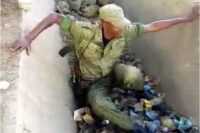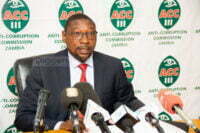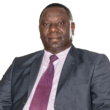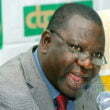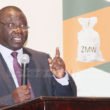Professor Oliver Saasa says Zambia’s poor ranking on the 2018 Transparency International corruption perception index makes the country vulnerable to vultures.
And Prof Saasa says acting Anti Corruption Commission Director General Rosemary Khuzwayo’s remarks that the commission does not understand why citizens have stopped reporting corruption are a mockery to tax payers.
When asked whether the 2018 Transparency International corruption perception index, which indicated that Zambia’s international ranking dropped by nine points in 2018, would affect investments in an interview, Prof Saasa said this made the country vulnerable to corrupt elements.
“Yes, it does affect investment because decent investors will not find a country where corruption is high to be a favourite destination for them to come and invest. But then you have to be careful here because there are so many vouchers out there who would actually prey on a corrupt country because they too are an integral part of corruption. So they will come in where they find government officials that are easy to bribe to invest wherever they want, even teaming up with them. These elements, when it comes to a country where the workers are easy to bribe and would be quiet even if they have been paid peanuts, they would come,” Prof Saasa said.
“So international investment, especially if you looking at quality international investment, corruption will not attract that quality investment because corruption also increases in terms of investment and the cost of doing business is high because it means that if you have to register a company, you have to take so many months to get things done which could have actually taken you less time and that’s where the problem is.”
He said if Zambia wanted to attract quality investment, government had to address such reports.
“So I would prefer if you are looking for really quality investment to start addressing reports of this nature. The tendency of challenging everyone who issues such reports to say ‘no you are lying’ when you have no alternative figures to show that you can discredit that report should come to end. This is an international parameter and we have to actually be ashamed but also from shame, we should actually take corrective action to make a difference,” Prof Saasa said.
“You encourage a minister to engage in corrupt practices if you do not raise a warning bell and you allow them to go away without being named and shamed…So my challenge is that at the level of the President, let’s do something about it because you have the powers, you have the ability to make the things happen more than anybody else in this country. Once the President does that, people must respond positively to that effort by the Head of State.”
And Prof Saasa described Khuzwayo’s remarks as a mockery to tax payers.
“If you are a whistle blower, you may end up actually being blown up, in a system where reporting a crime is itself considered to be a criminal activity. So what the ACC are saying is comical and it’s actually mocking the public, especially if this is a person you have employed to help as tax payers to help you. These people are stealing their salaries because we all as tax payers contribute. So if they tell us they don’t know then they are not helping us and they are not working. So [ACC], are you expecting people to give their answers? If these are same people who are reporting cases and you are not doing anything about them then why should they continue when they know that they will not walk away will not walk away with anything even if they come to you? So that’s actually a challenge that should be passed onto the lieutenants to deal with. And ACC is actually living in denial, they know the answer but they want to ask the victims,” said Prof Saasa.
“For me, that’s a shame. For someone who is paid by public money to make such a statement, it’s a shame. People at the Anti-Corruption Commission are not only supposed to sit in their offices and wait for cases to be reported. They are supposed to carry out investigations; they should be able, from the battalion of people that they have to monitor what’s happening, to interpret what’s happening and actually to inform the people. What I wanted to hear from someone in that capacity was to say ‘this is happening because of this’. For me, that’s positive because I am supposed to ask the ACC, that’s why we are paying them. They have to interpret why people are not going there to report cases. Of course many people would immediately tell you why they are not reporting. What’s the point of actually coming to the ACC when very serious transgressions have been reported by the ACC themselves, Auditor General’s reports are coming out, Financial Intelligence reports are coming out, whistle blowers are coming out. But investigations will take years to conclude and yet you know that corruption is taking place.”




